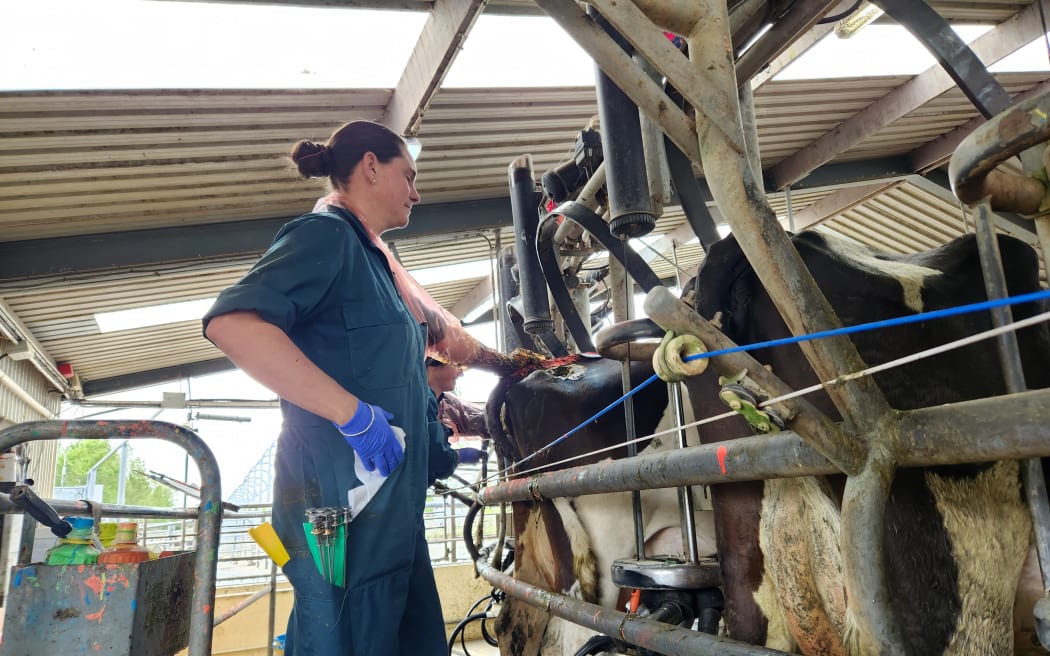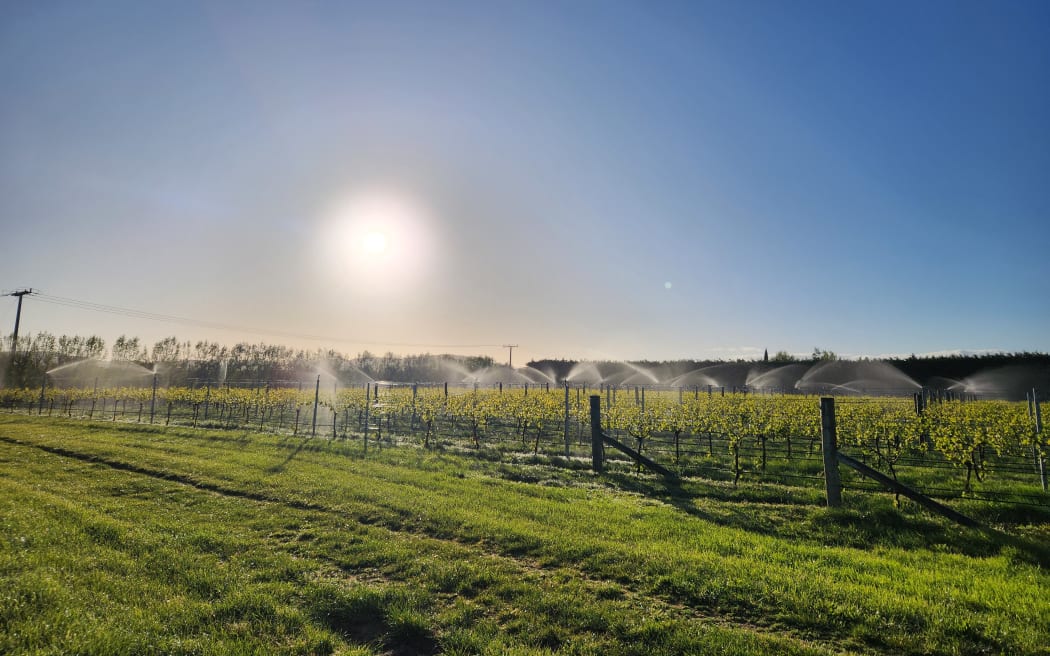Cattle prices have peaked and it's hard work selling sheep at spring fairs in Northland. In the Nelson region the late chill of August has set hops up well for strong growth.
The ground's sodden on Northland farms after about 150 millimetres of rain earlier this week. Our contact says it's nigh on impossible to get tractors into paddocks to sow crops. At local spring fairs, cattle prices have peaked and it's hard work trying to sell sheep. Our contact says farmers are holding back from buying stock due to economic uncertainty and fears of drought.
Mild spring weather with sufficient rainfall has been good for growth in Pukekohe. Our contact says the light supply of most vegetables should no longer be an issue.
A commercial blueberry grower in Waikato says there's another two months of harvesting to go in his tunnel houses. In the outdoor crop, flowering's all but finished, but the cool and moist conditions were not great for pollination. Harvesting gets underway in seven weeks. Staff are busy planting new varieties, mowing and weeding and doing machine maintenance.
A Bay of Plenty avocado grower says his orchard's in the middle of the pollination phase. As the bees buzz around doing their thing, staff are thinning 30 to 50 percent of the fruit bearing flowers on trees. He says early avocados will be ripe for picking from late November onwards.
A farm consultant in Taranaki says pasture growth's doing well at around 70 kilos of dry matter per hectare each day and lots of silage is being made. Mating's in full swing on dairy farms with good submission rates.

Artificial insemination technician at work Photo: RNZ/Sally Round
It's been a beautiful warm spring in Te Tai Rāwhiti. There's plenty of moisture. The grass is starting to spring back. There have been some record-breaking docking results though the trick will now be to ensure enough feed for all. It wouldn't take long to dry out with the windy conditions they've been having. Farmers are just starting to be able to get in to do that heavy rehab work on dams and tracks and ensure water systems are ready for summer. They're being advised to try and break open dams if they can't get in to dig out the silt. Ensure animals have another water source and let out the dams dry out until you can fix them as stock could get stuck in the mud trying to drink.
Apple trees have just finished blooming in Hawkes Bay and thinning will kick off in a couple of weeks. Stonefruit orchards are well into hand thinning. It's been a good spring - no significant hail or frost, warm with a lot of sun. A consultant says while there've been significant losses from this year's cyclone, they're seeing resilience among surviving apple and pear trees, despite the waterlogging and silt. The same cannot be said for stonefruit and kiwifruit, where it's now apparent whole blocks have completely died.
It's still pretty saturated in some parts of Rangitikei Manawatū. Pasture covers are generally good and are coping with peak feed demand at the moment. Docking results have been mixed.
It's been a stop, start spring in Wairarapa and the challenging season is not over yet. But the ground is drying out and finally heavy machinery can get onto the land. It's been an 18 month wait for one farmer to do the work needed. Dairy guys are flat out with mating and are a little happier with milk prices while those in the lamb business are not that optimistic. Rural support is still very active out at the coast eight months after Cyclone Gabrielle. In the vineyard, sprinklers have been on, keeping late spring frosts at bay.

Sprinklers on in the vineyard to guard against frost damage Photo: RNZ/Sally Round
at Tapawera in the Nelson region the late chill of August has set hops up well for strong growth. Hop strings are in place and teams of workers are training the vigorous hop bines up the strings. A time-consuming task but if done correctly, can give a superior yield at harvest and make the hop picking equipment process the crop more efficiently. Grass growth in the area's also excellent, giving ewes and lambs every opportunity to gain weight. Some good sunshine would be nice.
The Marlborough Sounds has been feeling more cooler southerly winds than usual. The farmer we talked to says this week, though, a couple of brilliant hot days were welcomed by ewes with lambs at foot. Surplus ewe hoggets have been sent off the property to lighten the load and cows and calves are doing well. Because of the wet summer and autumn there's been significant porina grass grub survival. The pest is consuming more grass than the livestock in some areas of the farm. It will become dormant shortly, but is likely to have an impact on lamb growth rates.
On the West Coast a farmer at Ross in South Westland has got a 'good feeling' about the 23/24 season. His cows are in tip-top condition and milking well... in fact production's up 7 to 8 percent on last year, there's plenty of feed around and paddocks are still firm under hoof, despite regular rainfall. Artificial Insemination or AI's due to start next week but other farmers in the district are well into it already, he says.
The last month has been frantic on our contact's Hororata farm in Canterbury, with fodder beet, kale, swedes, hybrid radish, spinach seed, and maize being planted. Fertiliser spreading and spraying's been difficult with a lot of windy conditions. Irrigation's now on as soils dry and temperatures increase. Bulls have also arrived and are out doing their job with the dairy heifers.
AI's in full swing on a Mataura dairy farm in Southland. Cows are just past peak milk production. Currently they're producing 2.3kg milk solids per day but this will drop when they get pregnant. New grass and crops are in the ground, but windy conditions are making life difficult for spray contractors. Our contact says the farmers he's talked to are holding back on spending until they know what policy changes will be made in the ag sector.

